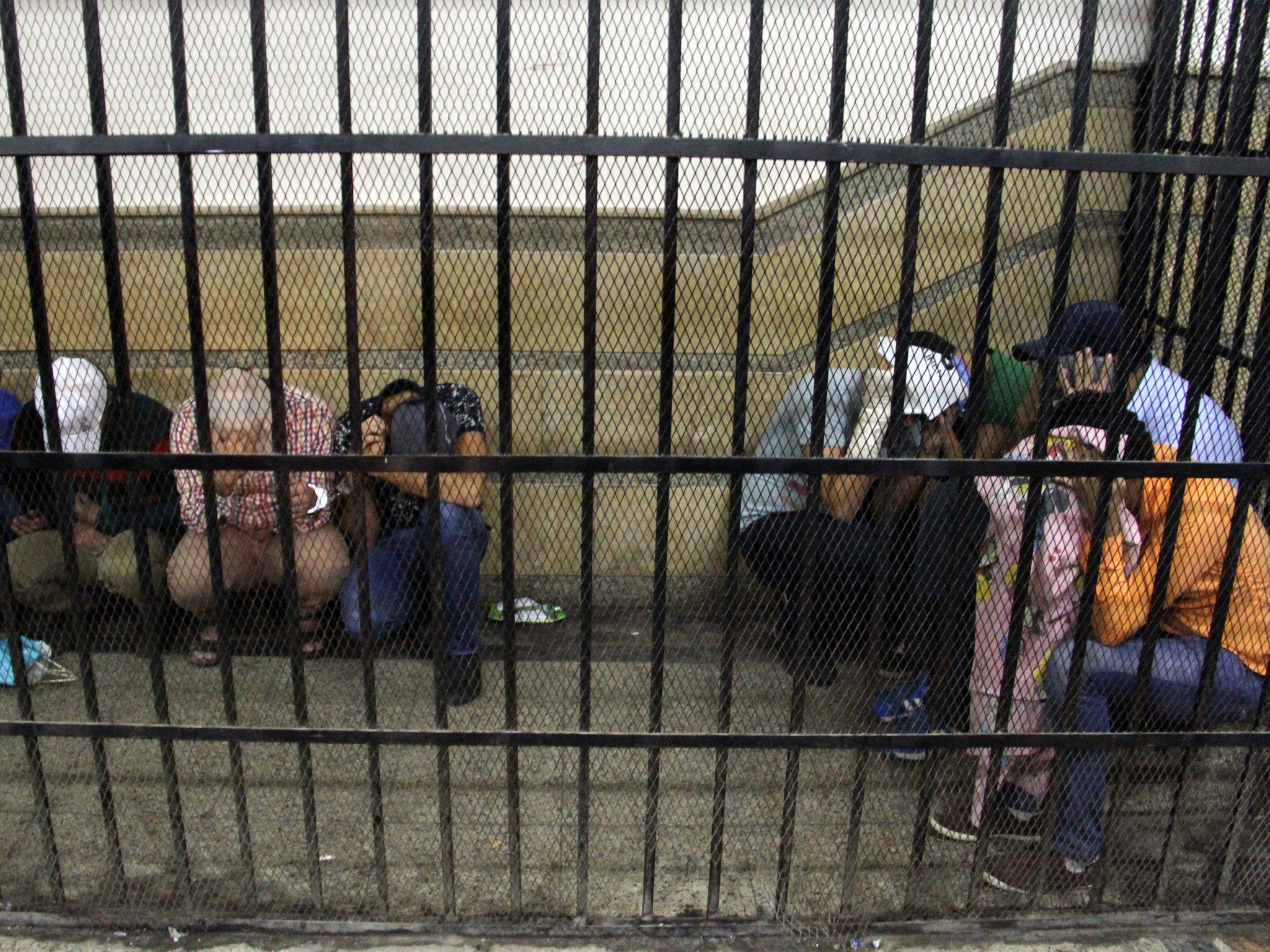Egypt condemned for upholding right to deport gay foreign nationals after court bans Libyan national accused of homosexuality re-entry
Human rights groups say move sets a 'very dangerous precedent' for refugees

Your support helps us to tell the story
From reproductive rights to climate change to Big Tech, The Independent is on the ground when the story is developing. Whether it's investigating the financials of Elon Musk's pro-Trump PAC or producing our latest documentary, 'The A Word', which shines a light on the American women fighting for reproductive rights, we know how important it is to parse out the facts from the messaging.
At such a critical moment in US history, we need reporters on the ground. Your donation allows us to keep sending journalists to speak to both sides of the story.
The Independent is trusted by Americans across the entire political spectrum. And unlike many other quality news outlets, we choose not to lock Americans out of our reporting and analysis with paywalls. We believe quality journalism should be available to everyone, paid for by those who can afford it.
Your support makes all the difference.Egypt has upheld the decision to deport a man to Libya after he was accused of homosexuality, in a case that human rights groups fear could allow authorities to force gay migrants to leave the country or ban them from entering.
Ahram Online reports that Egypt’s administrative court rejected an appeal by the unnamed man on Tuesday, who was arrested in 2008 after a legal complaint was filed accusing him of being gay and he was subsequently deported.
The Libyan national had appealed the interior ministry’s decision to deport him on the basis that he needed to return to complete his studies at Cairo's Arab Academy for Maritime Transport. However, the court upheld the ruling, claiming that it was in the public interest and in the interest of religious and social values.
Amnesty International said the decision to refuse him re-entry into the country sets a “very dangerous precedent” for migrants and refugees.
Nicholas Piachaud, Amnesty’s Egypt researcher, told The Independent: “It puts his life at risk and casts a long shadow over the lives of refugees and asylum seekers in Egypt. The ruling comes despite the fact that the United Nations Refugee Agency says no-one should be forcefully returned to Libya until the human rights situation improves.
“We have to see it in the context of Egypt’s security forces regularly rounding up dozens of people on allegations they are gay or have engaged in consensual same-sex relationships. The mere suspicion that they are gay seems to be enough to arrest people.”
Mr Piachaud said that while being gay is not strictly illegal in Egypt, people are often arrested and charged with habitual debauchery, often alongside other charges relating to prostitution.
“Legally speaking, being gay is not explicitly outlawed, but in practice, security forces have used the law to punish people they think might be gay or have a different viewpoint,” he added.
“What happened on Tuesday is that by rejecting the appeal, the court set a very dangerous precedent by saying that the interior ministry is in fact allowed to detain foreign nationals and deport them on the grounds that they are alleged to be gay or LBGT.”
Graeme Reid, the director of Human Rights Watch’s LBGT programme, blasted the decision for encroaching on the privacy of individuals living in the country.
“The decision of the Egyptian administrative court that it is lawful to expel or bar entry to gay foreigners in order to ‘protect public interest and religious and social values’ runs counter to Egyptian law,” he said. “It is not illegal to be gay in Egypt.
“Sadly Egyptian authorities consistently use LGBT issues to distract attention from widespread disregard for civil and political rights that are the hallmark of the al-Sisi government. If the Egyptian authorities were really concerned about protecting the public interest, they would focus on the human rights abuses carried out by the government.”
Join our commenting forum
Join thought-provoking conversations, follow other Independent readers and see their replies
Comments